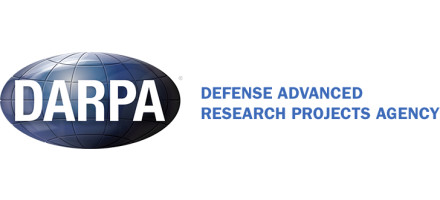DARPA program progresses towards fully automated rapid molecule production
NewsJune 22, 2018

ARLINGTON, Va. Researchers in the Defense Advanced Research Projects Agency (DARPA) Make-It program demonstrated significant progress toward fully automated rapid molecule production, which could speed the pace of chemical discovery for a range of defense products and applications.
Currently in the third year of a a four-year effort, DARPA's Make it program is developing software tools based on machine learning and expert-encoded rules to recommend synthetic routes optimized for factors such as cost, time, safety, or waste reduction.
The program seeks to free chemists so that they may focus their energy on chemical innovation, rather than testing various molecular synthesis pathways. The program also is developing automated devices that uniformly and reproducibly create the desired chemical based on the software-generated recipe – this one-device, many-molecules concept is a departure from the traditional dedicated reactors in chemical production.
“A seasoned research chemist may spend dozens of hours designing synthetic routes to a new molecule and months implementing and optimizing the synthesis in a lab,” says Anne Fischer, program manager in DARPA’s Defense Sciences Office. “Make-It is not only freeing chemists to expend brain power in other areas such as molecular discovery and innovation, it is opening chemical synthesis and discovery to a much broader community of scientific researchers who will benefit from faster development of new molecules.”
A major benefit of automated chemical synthesis is that it creates reproducible procedures, which democratizes and accelerates production. A drawback with existing non-automated approaches is that seemingly negligible changes – e.g., how fast a reaction is stirred or slightly different temperature conditions – can have a big impact on the purity and yield of the chemicals produced. This leads to lab-to-lab variability and difficulty reproducing prior-reported syntheses.
“We’re essentially coding the chemical synthesis process,” Fischer says. “This promises to assure reproducibility to exacting standards, no matter where you produce it. Because the routes are implemented with software-based instructions, any Make-It synthesis device should produce chemicals with precisely the same make-up every time.”
Additionally, automation provides a safer, cleaner, and more secure process since chemists do not need to physically handle dangerous chemicals, such as those used to develop new explosives for the military. Make-It synthesis machines require low solvent volumes, which results in less lab waste.
Make-It is achieving success due to its multidisciplinary focus with a talented group of researchers, combining computer science, organic chemistry, and chemical engineering expertise to address three areas:
- Automated molecule design
- Automated synthesis, or production
- Rapid reaction screening
The Massachusetts Institute of Technology (MIT), SRI International, and Grzybowski Scientific Inventions (GSI) are exploring different approaches for developing software to automatically design various chemical route options. GSI’s molecular route optimization software is now commercially available. MIT and SRI are also developing hardware to synthesize molecules.
The University of Glasgow is developing software to design and 3-D print small, portable reactors to provide manufacturing of specific molecules “on-the-go.” Such disposable or recyclable reactors could enable much lower cost synthesis of high value, niche-area products, particularly in austere locations.
In the rapid reaction screening focus area, Purdue University and Boston University are exploring methods to build, understand, and utilize large data sets of chemical reactions to train machine-learning algorithms so they can quickly design novel molecule pathways.
“What’s exciting about Make-It is the prospect of being able to make any molecule,” Fischer explains. “We’ve already shown in DARPA’s Pharmacy on Demand effort in the Battlefield Medicine program that an automated flow-chemistry machine can produce common pharmaceuticals on demand in austere locations, obviating the need for transporting and stockpiling key medicines for our troops in forward-deployed environments. Now we’ve opened up rapid chemical innovation to address not just pharmaceuticals but all areas of defense.”
Next steps in the program include integrating real-time characterization of the synthesis process through analytical instrumentation and developing more complex molecules.
DARPA Make-It researchers will present their results during a special session at the American Chemical Society’s National Meeting & Expo in Boston, Massachusetts, August 19-23, 2018. For details visit: https://www.acs.org/content/acs/en/meetings/national-meeting.html







